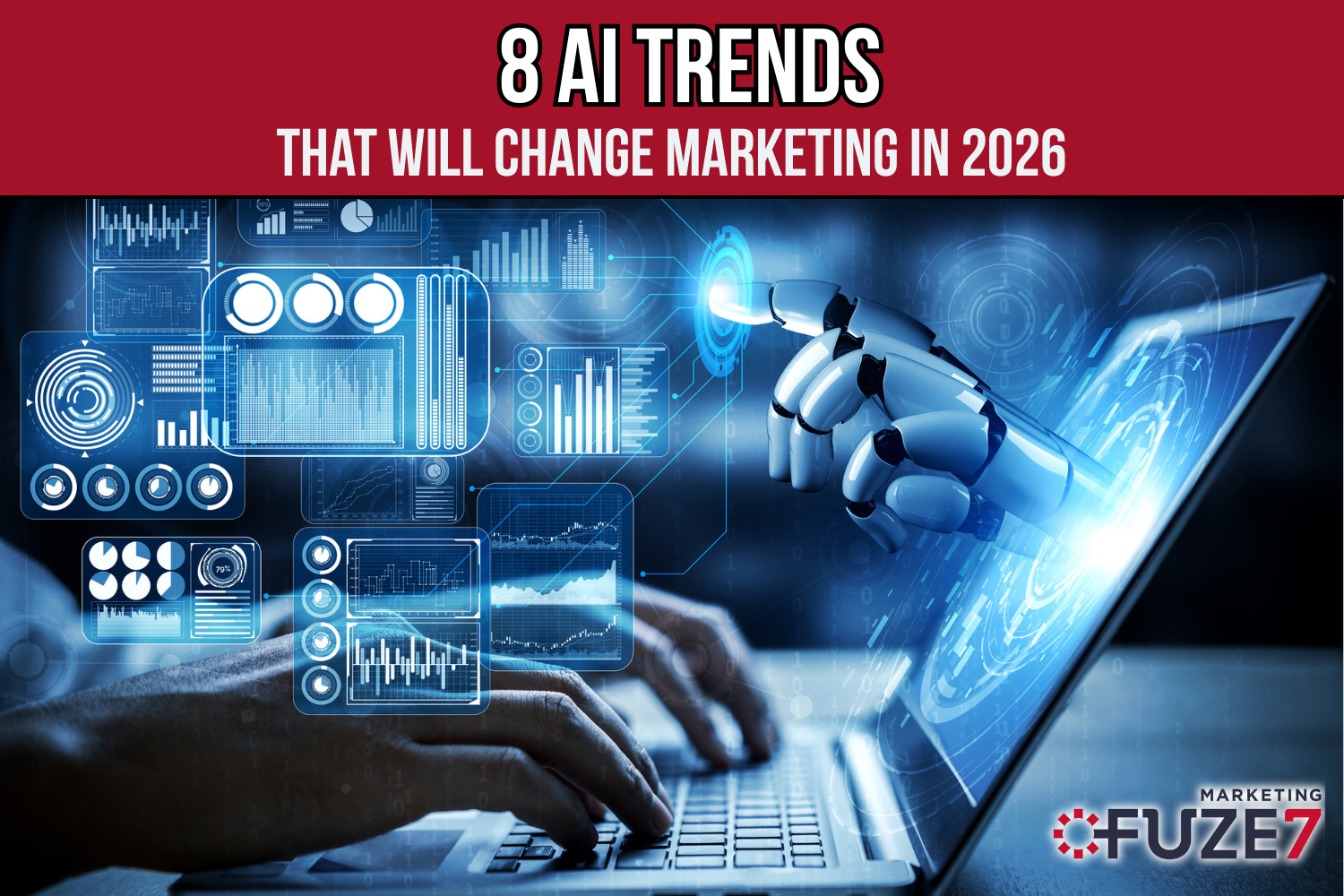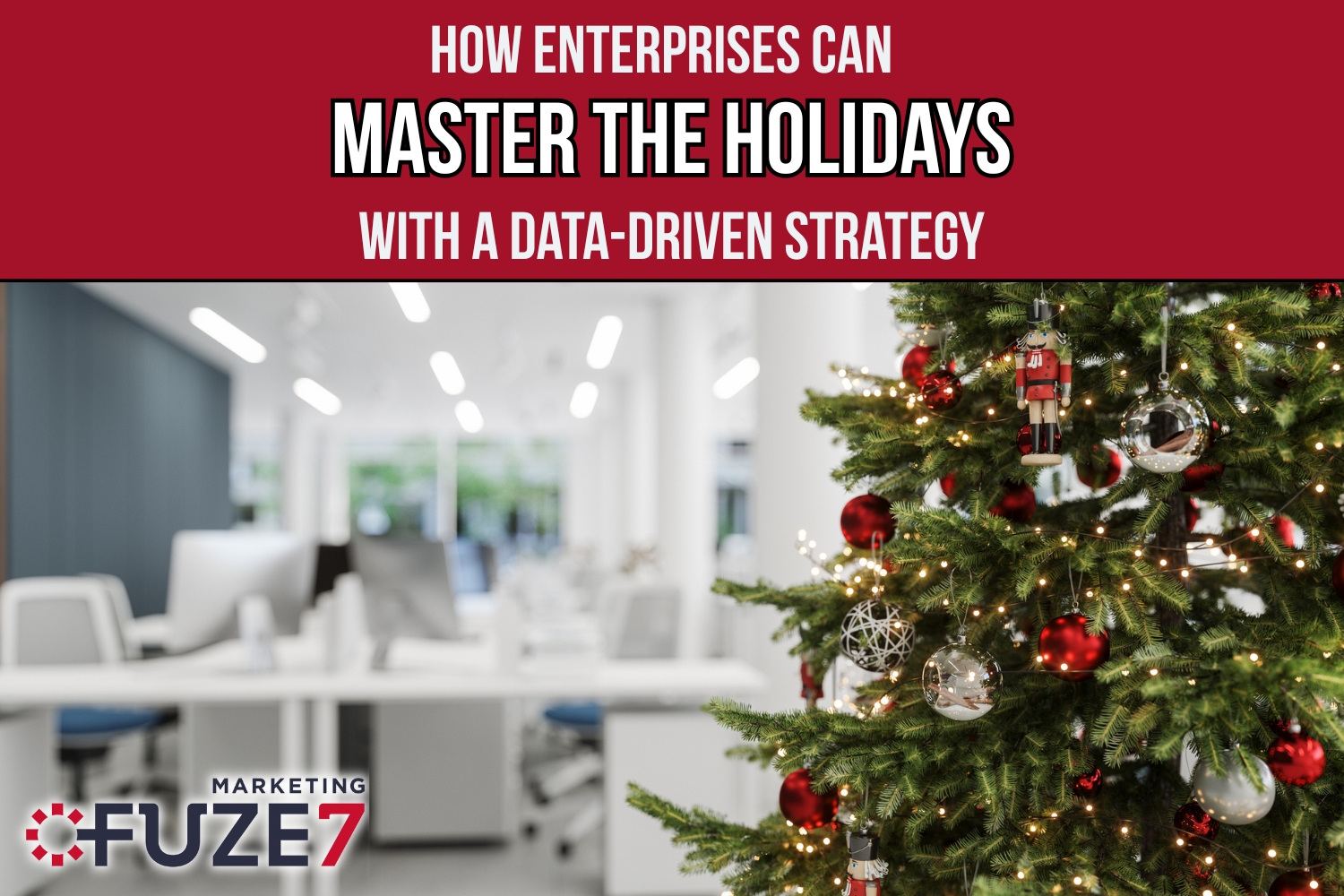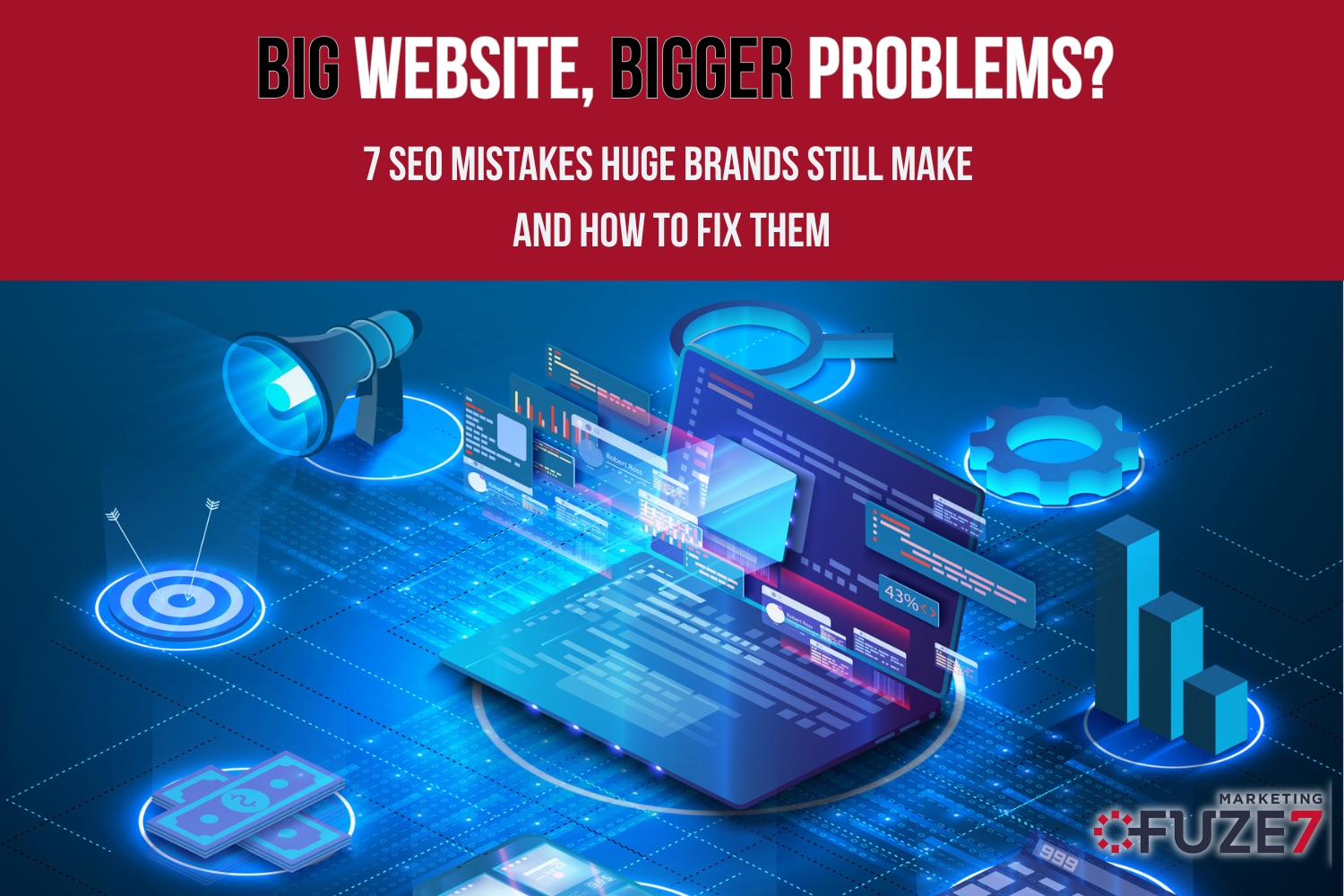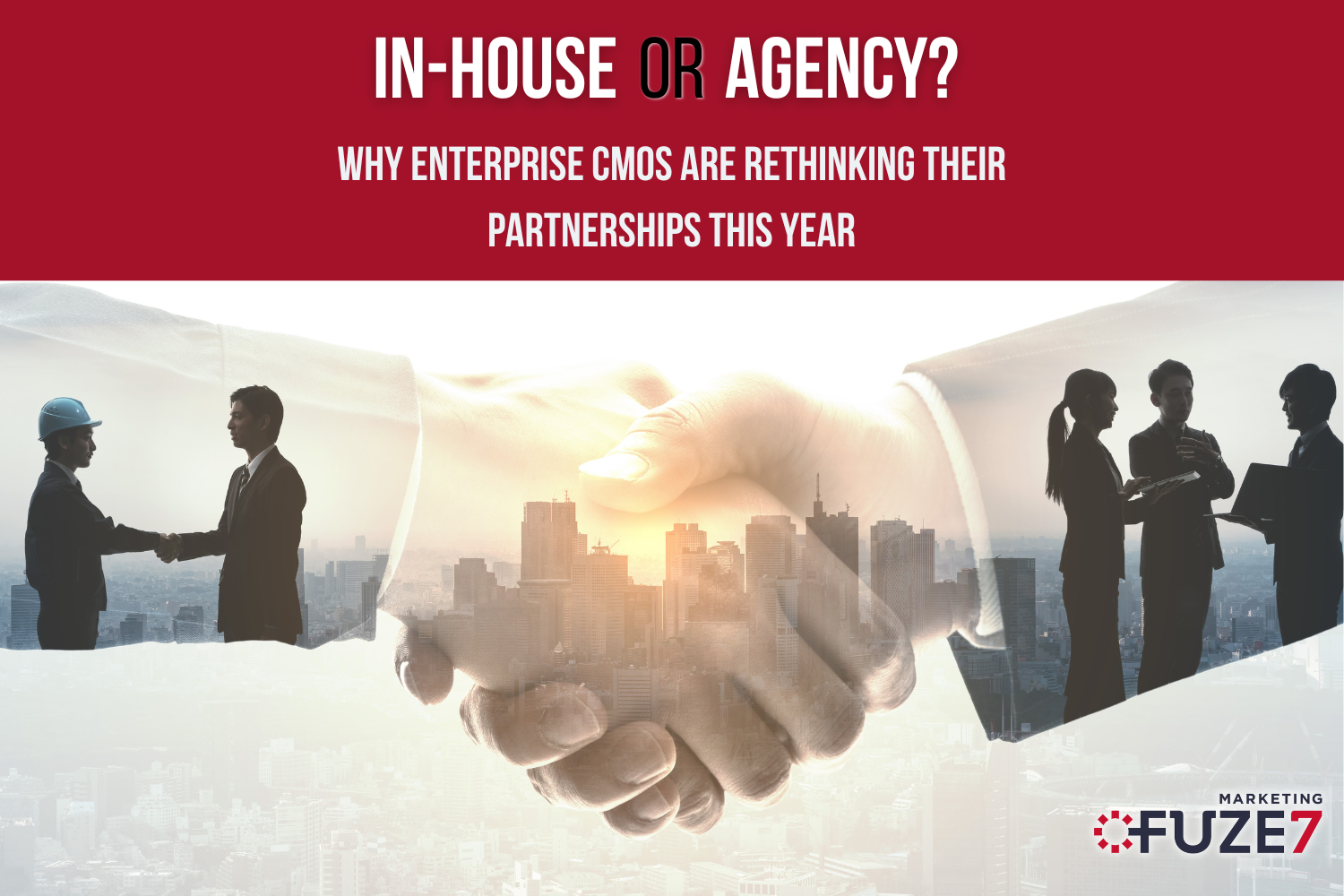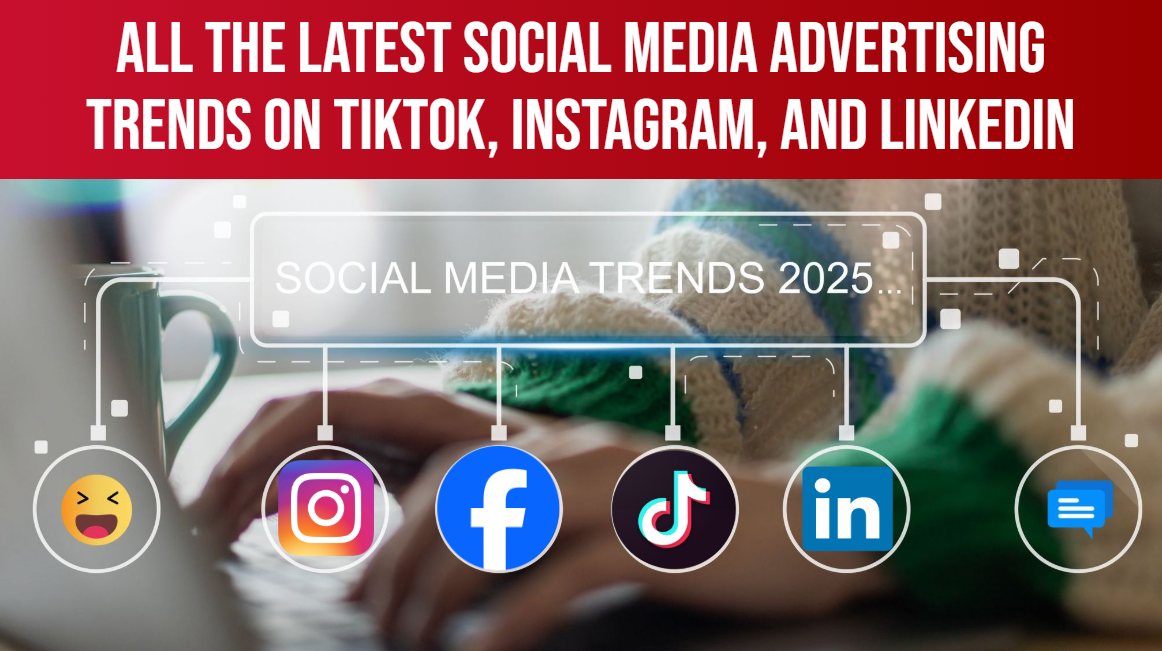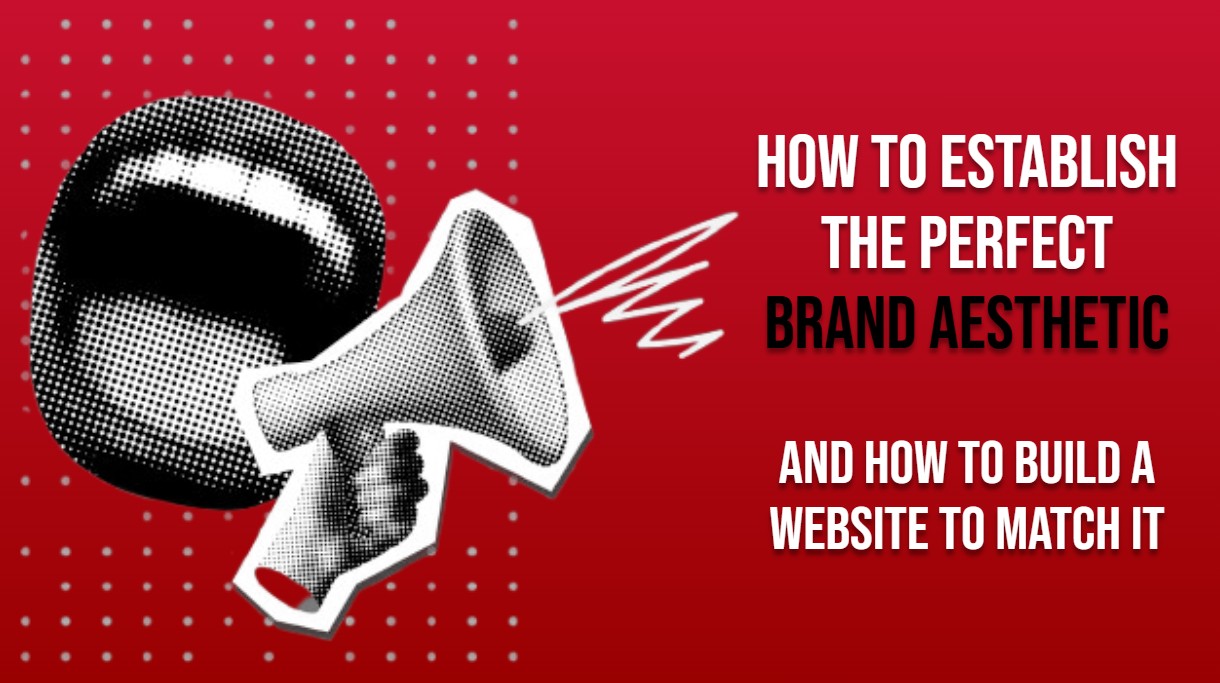Artificial intelligence isn’t just “coming soon” to marketing; it’s already here and rewriting the rulebook on how brands connect with customers. If you’re running a large company, you’ve probably felt the friction between the promise of AI in marketing and the messy reality of actually putting it to work.
You’re not alone. The sheer speed of AI innovation has even the biggest enterprises scrambling to adapt.
The good news is that by understanding the AI trends shaping digital marketing in 2026, you can stay ahead of the curve instead of playing catch-up. At Fuze7, we stay at the forefront of AI innovation and, more importantly, help businesses like yours harness it without wasting time, talent, or budget.
Let’s break down the key AI marketing strategies you need to know, along with actionable ways to implement them.
1. Hyper-Personalization at Enterprise Scale
If you’ve experimented with personalization in the past, like segmenting audiences by demographics or behavior, get ready for the 2026 upgrade. AI will make personalization so advanced that it borders on predictive. Think of AI analyzing thousands of data points to deliver marketing messages so tailored that customers feel like you’re reading their minds.
For enterprises managing millions of customers, this isn’t just convenient; it’s a game-changer. By integrating AI-driven personalization in marketing campaigns, you’ll cut through the noise, boost engagement, and drive loyalty.
2. AI-Powered Content Creation Gets Smarter
We’ve all seen AI-generated copy, product descriptions, and even blog posts that feel robotic. In 2026, AI in content marketing will radically improve. AI tools will learn your brand voice, adapt to industry nuances, and create content that resonates on a human level.
For busy marketing leaders juggling multiple campaigns, this means less time spent staring at a blank screen and more time fine-tuning strategy. AI marketing automation tools will help you scale without sacrificing quality.
However, don’t hand over the keys entirely. The best results come from a hybrid model where AI drafts content, and a content specialist adds the insight and polish that machines can’t replicate.
3. Smarter AI Marketing Automation
The truth is that many marketing automation platforms are still clunky, with endless workflows to set up and maintain. AI will evolve from “helpful tool” to “autopilot operator.” Expect automation systems that not only execute tasks but also optimize themselves based on real-time performance data.
From AI in digital advertising that reallocates ad spend instantly to email systems that auto-adjust subject lines mid-campaign, automation will free your team from manual tinkering.
If your automation platform feels outdated now, start exploring upgrades. Waiting until 2026 will put you behind competitors who are already testing next-gen solutions.
4. Predictive Analytics That Actually Deliver
Every marketer dreams of accurately predicting customer behavior. Thanks to AI-driven predictive analytics, 2026 may finally be the year it becomes mainstream. Instead of reacting to lagging indicators like last month’s sales data, you’ll have insights that project future buying patterns, churn risk, and campaign ROI.
For large organizations, this means making smarter decisions faster, whether reallocating budgets or refining audience targeting. Get ahead now by aligning predictive analytics with your digital marketing strategy so insights aren’t just interesting reports. They’re also actionable levers that drive revenue.
5. Voice and Visual Search Dominate
Typing keywords into Google is a thing of the past. Voice search optimization and visual search in marketing will soon be essential. Customers are already asking Alexa to find products and snapping pictures on Pinterest to shop. AI is the engine making those searches possible, and it’s only getting stronger.
For big businesses, this means ensuring your digital assets, from product photos to landing pages, are optimized for AI-driven discovery. So update your SEO playbook. Incorporating conversational keywords and high-quality visuals will set you up for search success in an AI-first era.
6. Real-Time AI Customer Support
Customer expectations are skyrocketing. Nobody wants to wait two days for an email reply. AI-powered chatbots and virtual assistants are already making customer support faster, but in 2026, they’ll start to feel almost indistinguishable from human agents.
For enterprises fielding thousands of inquiries daily, AI customer support tools can reduce costs, improve response times, and keep customers happier. However, don’t think of AI as a replacement for human support. Instead, use it to triage common issues and free your human team for complex, high-value interactions.
7. AI and Data Privacy Balance
Here’s the catch: the more AI learns about your customers, the more sensitive data it’s handling. Regulations will continue to tighten, and businesses that fail to balance personalization with privacy will pay the price, in both fines and customer trust.
Expect to see AI tools with built-in compliance features that help manage consent, anonymize data, and protect customer privacy. Work with partners who stay on top of shifting regulations and understand how to bake privacy into every AI marketing strategy.
8. AI in Digital Advertising Gets Even Sharper
The days of guessing which ad creative will work best are numbered. In 2026, AI in digital advertising will test, optimize, and scale campaigns in real time. From programmatic ad buys to dynamic creative testing, AI will help big brands squeeze every ounce of ROI out of their budgets.
While using AI for testing, don’t skip the human layer. Emotional intelligence and storytelling remain irreplaceable in truly memorable campaigns.
So, Where Do You Start?
If you’re feeling overwhelmed by the sheer pace of change, you’re not alone. Big companies face unique challenges: siloed teams, complex tech stacks, and the pressure to prove ROI on massive budgets. But that’s exactly why partnering with experts matters.
At Fuze7, we specialize in helping enterprise brands navigate the future of AI in marketing with strategies tailored to your goals. If you’re rethinking digital marketing strategy, implementing AI marketing automation, or exploring predictive analytics, we can help you cut through the noise and focus on what works.
The future of AI in marketing is exciting, but it doesn’t have to be overwhelming. With the right partner, it can be an opportunity to sharpen your competitive edge. Contact our team at Fuze7 Marketing today.
